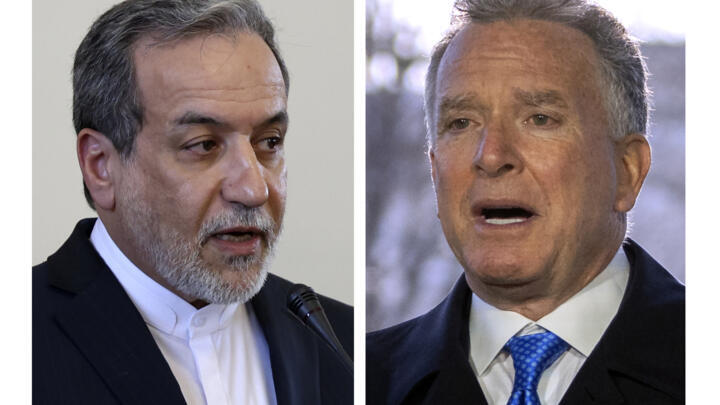Why will the US-Iran talks, the so-called “last chance for diplomacy”, fail?
Why will the US-Iran talks, the so-called “last chance for diplomacy”, fail?
By Adem Kılıç, Political Scientist / Author
After a long period of threatening rhetoric and new arms transfers to Israel, Donald Trump surprisingly announced last week that the United States and Iran would begin direct talks.
Given Trump’s Iran policies during his first term and the first three months of his second term, some might think that this was a surprise.
However, it is important to note that this process is a fruitless endeavor and will only serve to bolster the “diplomatic avenues have been exhausted” narrative.
Why will the process fail?
Firstly, Trump and Netanyahu certainly want to exploit an environment in which Iran’s proxy forces, the so-called “Axis of Resistance”, are weakened and the concept of war for Israel’s so-called “security” is implanted in the region.
Iran, on the other hand, does not want to lose its nuclear trump card in an environment where its doctrine of asymmetric military deterrence through its proxies has suffered a major blow.
Iran fears that in such a situation, Iran could suffer the same fate as Gaddafi’s Libya.
In 2003, Libya, under the leadership of Muammar Gaddafi, agreed to dismantle its nuclear program in order to break a twenty-year US embargo, but after denuclearization, it was first bombed by a NATO coalition and then plunged into civil war.
This process culminated in the overthrow of Gaddafi in 2011.
Knowing this recent example, Iran does not want to risk giving up nuclear weapons altogether. While Iran continues to maintain and even increase its significant conventional military capabilities, it also sees its nuclear facilities as “insurance”.
In fact, Iran is almost certain that any such deal would be aimed at weakening Iran and ultimately toppling its regime.
On the other hand, the Houthis in Yemen, so far the least vulnerable pillar of the Axis of Resistance, have been under intense airstrikes for weeks. The United States has recently significantly increased its force posture in the region, including increased activity at the Diego Garcia base.
This clearly shows that the military option is far from being shelved.
Israel’s role
Israeli Prime Minister Benjamin Netanyahu argues that the complete elimination of Iran’s nuclear program is the only solution.
At this stage, it is not clear what the negotiating parameters are. The lack of detailed statements from the parties after the talks, which started on Saturday, shows that there is no clear roadmap.
For example, there is not even agreement on whether the main theme of the negotiations is “arms control or complete disarmament”. This clearly shows how far from a solution the process is.
On the other hand, according to Netanyahu and his “far-right” cabinet, prolonged negotiations could lead Iran to exert pressure during the talks or take dangerous steps, such as transferring its enriched uranium resources to unknown destinations.
For this reason, Israel does not want the process to drag on for too long, which is almost impossible given the historical precedent for such a process to end in a short period of time.
Conclusion
Iran’s options against all this pressure, both military and economic threats, are very limited.
Iran can only threaten to attack US military bases in the Gulf, US allies or Israel to create a credible deterrent.
Iran knows very well that it has almost no allies in the region.
Knowing all these balances very well, Trump has made it clear that if the negotiations fail, he will support an Israeli attack on Iran’s nuclear facilities, or he may launch a unilateral attack.
In light of all these balances, it seems that the Trump administration has very little to lose by negotiating with the Iranian leadership, and that Trump only wants to bolster his “diplomatic avenues have been exhausted” narrative with this fruitless initiative.
In such a scenario, US “allies” in the Gulf may be more lenient in their attacks on Iranian assets and Tehran may be more easily demonized as the party undermining the talks.

















Leave a Reply